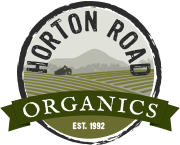I have been thinking about failure this week.
Earlier this week, I was called out for being too slow harvesting a certain crop. Something i’ve been slow at pretty consistently, despite taking all the advice i can on speeding up.
Feeling like i’m trying to do my best, and then being told it’s not good enough, is a tough pill to swallow. I started thinking, “do i even want to be a farmer?”
I spent over half my life in the same industry, if not the same job. I started doing theater in high school. By college, I was spending half my time studying sociology and half my time working in the theater department lighting shows.
I never really meant to do lighting for a living. I went to college thinking i was going to be a social worker. After college, I spent a year doing americorps, volunteering in louisiana and mississippi after katrina. But i kept going back to theater. And then, I expanded out into also doing television and events such as fashion shows. I liked that as a stagehand, I could always be doing something new, but the basic principles were the same. I learned all i needed to know about how to troubleshoot electrical issues in my first year doing lighting in New York, and then i just scaled up over and over.
There came a time when i no longer felt engaged with what i was doing. I stopped wanting to keep moving up the chain to the bigger and better jobs. I started wishing I could do something to improve the planet instead of being in such a wasteful industry. I loved working with my hands and being outside. Thus, farming. (this is the short version of a story that took about 5 years to come about)
So here we are, and I’m not that good at anything. It’s understandable. I’m an apprentice. I essentially have 3 months of experience in this job.
But i am not that young anymore. And it feels harder to be bad at something after having a decade+ career in a field where i was sought after, because i was good at what i did.
So sometimes i think, should i just go back to new york? should i just go back to my old job? And i know the answer. Both in theory and in practice, because i went back last winter and worked for a month after spending last year wwoofing on the west coast. It was nice to be somewhere familiar, to do something i’m good at. But at lunch i would stare out the window and wish i could see trees.
I remind myself that i like a challenge. That it’s good to be learning new things. That i’m building towards expertise in this new field.
And I’m not going to quit now. What if next week, it finally clicks and i figure out how to be as fast as i need to be? Plus, how satisfying is it going to be to get to October and know that I was an integral part of making things happen here at Horton for 2019.
I know that i have already grown since getting here. i know that i have a better understanding of the ecosystem of farming, and i have had the opportunity to have a hand in each step from seed to harvest. I have 3 more months to learn and grow. I guess we’ll all find out together where i’ve gotten by the end of October.
Amanda is a 35 year old New Yorker at heart who relocated to Oregon a year ago to try her hand at farming.


